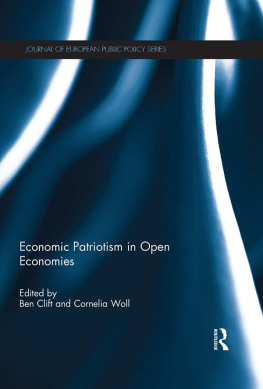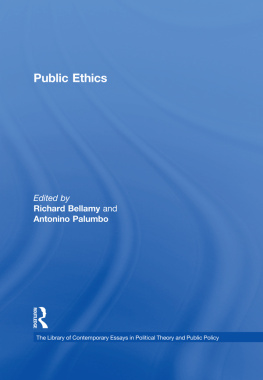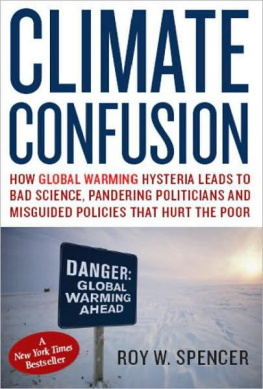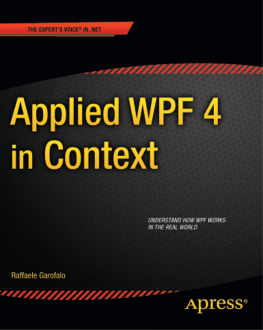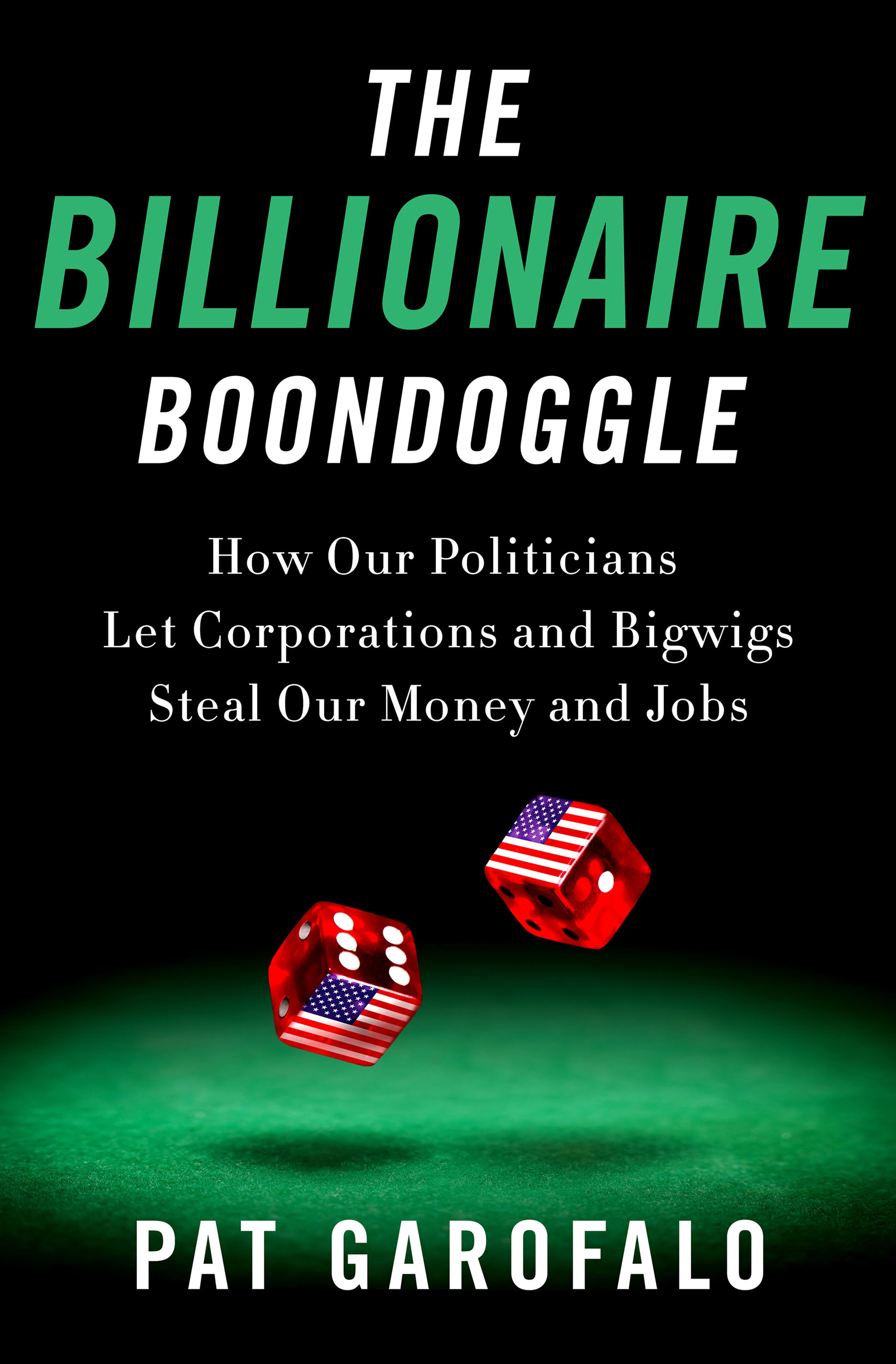The author and publisher have provided this ebook to you for your personal use only. You may not make this ebook publicly available in any way. Copyright infringement is against the law. If you believe the copy of this ebook you are reading infringes on the authors copyright, please notify the publisher at: us.macmillanusa.com/piracy.
ARE YOU NOT ENTERTAINED?
So asks Russell Crowes character, Maximus Decimus Meridius, in the 2000 movie Gladiator, a moment that lives on today in eternal internet GIF fame. The film is built around the concept of the Roman coliseum, and the spectacles that famously took place in those ancient arenas as a way to placate and distract citizens with what the Roman poet Juvenal derided as bread and circuses.
Todays entertainment industry is quite a bit different. No ones being fed to any lions, and even mixed martial arts cant match gladiatorial combat when it comes to sheer bloodletting. More important, the government is generally not in the business of organizing violent displays to keep the plebeians from rioting in the streets.
But dont think that means the government is out of the entertainment business entirely. No, the biggest entertainment corporations in America today are very much entangled with lawmakers at every level, from federal on down to local. However, public money is spent not on keeping citizens happy to ensure they are pliant, but on keeping corporate leaders happy so they continue making campaign donations and dont threaten to move their businesses to some other jurisdiction. Your tax dollars bolster the entertainment industrys bottom line in an unholy convergence of private and public. And thats merely the tip of the iceberg when it comes to the many ways corporate America makes off with your money, while not creating the jobs it promises.
Consider these stories.
In the spring of 2018, if you had taken the Green Line in Washington, DC, to the Navy Yard stop on a Tuesday night, then followed the sea of red-and-blue hats up onto the street, youd likely be headed to a Washington Nationals game (barring some oddly placed political protest that evening). The Nats, as theyre known, have called Americas capital home since 2005, when the Major League Baseball franchise left Montreal, depriving Canada of the Expos. They have played in Nationals Park, on the shores of the Anacostia River, since the 2008 season.
The area around Nats Park, the shorthand favored by DC residents for the rather nondescript stadium, is up-and-coming, with hip new apartment buildings, fancy restaurants, and chain coffee shopsas well as the constant presence of construction equipment. Both a brewery and a winery are within shouting distance. A lot of people, from city council members to DC sportswriters, think all that development is thanks to the stadiumand they make their case, constantly, since the city paid to have Nats Park built.
The sticker price of the stadium was about $700 million, but once interest and other costs are factored in, Washington will have coughed up about $1 billion for the privilege of having an MLB facility within its borders. To convince taxpayers in the city to pay up, especially since DC has its fair share of nonbaseball problems and advocates clamoring for money to solve them, the story told by the stadiums boosters was that it would revitalize a part of DC that desperately needed some economic activity, juicing development thanks to an influx of fans and their money. And new stuff is cropping up in that part of town every day, so mission accomplished, right?
Not so fast.
Disneys The Avengers made well more than $1 billion at the box office. Thats not a bad return on a $220 million budget. Actor Robert Downey Jr. alone was paid some $50 million for reprising his role as Iron Man in the film, and the multiple sequels that followed made billions more.
Those are big numbers, but another one nowhere near as large should be just as eye-popping: $22 million. Thats how much New Mexico provided to The Avengers in film subsidiestax breaks, essentiallyeven as the state was dealing with budget woes that required it to cut a plethora of government services, including funding for both pre-K and higher ed.
Those in favor of the subsidies argued that giving public money to blockbuster film productions would turn New Mexico into a second Hollywood, as former governor Gary Johnson put it, providing jobs to New Mexicans who wouldnt have them otherwise and creating an entire industry where there had previously been nothing at all. Scores of folks who would have had to move elsewhere for work could instead stay in New Mexico, as an industry sprang up from the ground; people who previously had no interest in the state would flock in, fleeing the high taxes in places such as California and New York. It would be a win-win for taxpayers, workers, and industry alike, and all for the relatively low cost of a few tax incentives.
The case against? We could have spent that twenty-two million dollars on all kinds of things, like education for our children. We could have spent it on roads, lamented one New Mexico state representative at the time.
So was this actually a heroic move on the part of New Mexicos lawmakers or not?
As of January 2018, the state of Georgia has been providing tax breaks to concert tours that begin in the Peach State, as well as to recording or scoring sessions that take place there. Pinched by industry concentration in Nashville to the west and New York to the north, the state that was home to Ray Charles, the Allman Brothers Band, and R.E.M. wanted to prevent the biggest acts in the country from passing it by and preserve the recording industrys foothold, so Georgia wouldnt become another casualty of the ever-more-transportable nature of twenty-first-century capital. To qualify for one provision, bands needed to rehearse and begin tours right in Georgia. Music made by Georgians, whether its the names you know or one of the thousands of unknown creatives behind the scenes, is one of Georgias biggest international exports, said one of the proponents of the tax measures.
Other states had tried unsuccessfully to pass similar laws before. When New York Governor Andrew Cuomo vetoed an effort to spend $50 million on music-related tax incentives in the Empire State, advocates claimed he was shooting down a measure that would have helped some one hundred thousand New Yorkers find and keep jobs. In Georgia, meanwhile, small-government advocates and lefty policy wonks alike complained that the state was wasting money on yet another targeted tax break in a state already addicted to them, mirroring the debates that happened in state legislatures from California to Maine.
So who was hitting the right notes?
All of these stories and questionswhich perhaps seem disconnected, since theyre about a stadium in DC, a movie made in New Mexico, and concerts in Georgiahave something important in common. Theyre all part of the big lie propagated by the entertainment industry, in all its various iterations, and by the rest of corporate America, as well as by the lawmakers who do its bidding: that entertainment drives economic development and your tax dollars are needed to grease the skids.
From coast to coast, Maine to Hawaii and Washington to Florida, public money is being used to support the most high-profile cultural icons America has to offer, all based on a broken economic theory, one that says publicly supporting hugely profitable corporations or billionaire sports team owners will redound to the publics benefit. That entertainment drives an economy is a myth, but it has permeated every facet of policymaking despite the overwhelming evidence that it results in a raw deal for the taxpaying public and windfalls for the already well-off; almost no one is immune from the effects, even if most dont know it.


